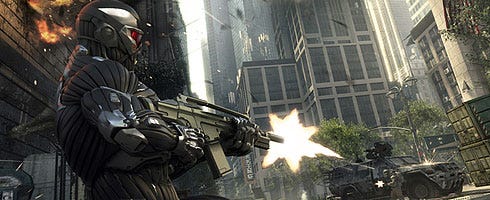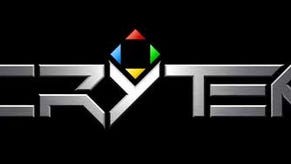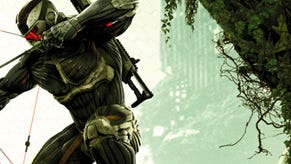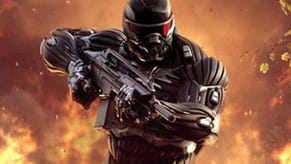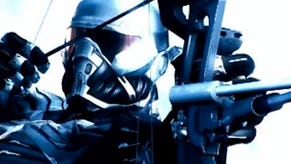Interview: Crysis 2 exec producer, Nathan Camarillo
Crysis is a tough act to follow. Three years on, the Crytek shooter is still considered to be both a PC graphics benchmark and a hardcore darling, so bringing the IP to consoles raises some obvious questions: will the PC version be crippled? Will the console versions be choppy? Will Crytek manage the transition from PC-only to multi-plat without imploding? Will a comet ever destroy life on earth?
They seemed obvious to us, anyway. We asked Crysis 2 executive producer Nathan Camarillo for the answers. Apart from the comet one, obviously: we've all seen Armageddon.
[Interview by Patrick Garratt. This chat took place the day after Crysis 2's formal reveal in New York earlier this month.]
VG247: How was the reaction to the showing?
Nathan Camarillo: We’re very pleased. It seems like a very positive reaction from everyone. We’re more than happy to show the software to everybody. We’ve been wanting to do that for quite a while, and the team has been dying to get the product seen, because they’ve been working really, really hard on it for the last couple of years. We’ve played our hand very close to our chest, because this industry is very competitive right now. We’re on the leading edge of technology and graphics, and anything we show has a risk of being adopted in other titles that will release in the same window. We’ve been holding back for a little bit longer than is typical.
Why did you show the game on 360?
Nathan Camarillo: For a lot of people in the community and press, that was the concern. “What will they be able to do? Will they be able to do this type of game on console or not, and what will it looks like, and will it be fun, and will it be hamstrung? These are PC developers.” We wanted to show console hardware, show the game running on 360, get it out there and get people talking about it in a positive way.
How have you found the transition from being a PC developer to doing multi-platform?
Nathan Camarillo: It’s been relatively easy. I mean, it’s not without its difficulties. It’s not the hardware aspect; it’s your mentality of being a console developer versus strictly PC. In a lot of ways it’s really good for us, as we already had really good tools with CryENGINE 2. The goal of CryENGINE 3 was to make an engine that would run multi-platform, that would run on console. That was the goal from the beginning. It forced us to optimize a lot of the technology and the systems that we have, and also improve our work-flow to be multi-platform while keeping everything in as small an iteration as was possible. From a work-flow and technology standpoint it was extremely positive, and from a game-design and development point of view it was extremely positive as well, because you can’t just keep raising your minmum spec. You have a closed platform and you only have so much to work with, so you have to be more efficient and smarter about what you add to the game and how you do it. That doesn’t necessarily mean doing less of some things; in some cases you’re doing more. You’re just not adding as many tiny, one-off things. Everything is more systemic and more nested, and has more interactions across layers. In the end I think it’s made us a stronger developer all around, not just [in terms of] technology but also the quality of the gameplay that we’re going to get out of Crysis 2.
I asked Cevat yesterday why you were bringing the game to consoles, and he said it was because there were more gamers there and it was going to give the IP a broader reach. Realistically, do you think that going multi-platform was a necessity for Crytek as a business?
Nathan Camarillo: That’s probably a better question for Cevat because he’s the CEO of the company, but yeah, it’s only a positive thing for us to be multi-platform. If it makes better games, that’s always an extremely positive thing. We do license our CryENGINE technology, and it gives us a broader reach not only with our gaming audience, but with licensing. Part of that is enabling other developers to make better games as well. I think it’s inevitable that we would have wanted to be multi-platform anyway.
There are concerns in the community, obviously. Crysis was a PC benchmark, and was very much a hardcore game. It’s USP, eventually, was that it was incredibly heavy on technology. There are concerns that, because it’s being moved to console, the PC experience will be wound back in some way. It’s the same game on PC, 360 and PS3, and the PC version will end up being…
Nathan Camarillo: Hamstrung?
Yeah.
Nathan Camarillo: I think this is going to be a hotly-debated topic until we show a lot of gameplay footage on the internet, all three versions, and people are then able to make comparisons and see for themselves. There’s nothing to be worried about. The powerful thing about CryENGINE 3 is that it’s scalable, and it’s scalable for platforms. In the end, 360 and PS3 owners will probably get a very identically experience both visually and technologically. PC gamers shouldn’t be worried. We’ve said this a lot before in other interviews, but it’s really honest that we consider Crysis 1 to still be the pinnacle of PC visuals, and us and gamers and everyone else still tend to agree that, three years later, [people still say,] “Can it run Crysis?”
It’s true.
Nathan Camarillo: It’s still a visual benchmark, and we’re not going to let Crysis 1 kick Crysis 2’s butt in terms of that benchmark. We’ll set a new benchmark for Crysis 2.
It actually says on EA’s game-page at the moment that Crysis is the best-looking FPS game. So, Crysis 2 will be the only game that’s better-looking than Crysis 1?
Nathan Camarillo: Exactly.
I like that.
Nathan Camarillo: I don’t think people will be disappointed. There will be some technological features unique to PC. We’re not going into details on that now, but in the end it’s all quality per platform. We want the best PC game, we want the best PS3 game, we want the best 360 game.
You’re going to face some very vociferous comments about which platform is actually best.
Nathan Camarillo: [Laughs]
In terms of framerates and similar benchmarks, which platform to you expect to excel at the moment?
Nathan Camarillo: I think equal.
Literally the same?
Nathan Camarillo: Very close. There might be some very minor, nitpicky differences. If people want to go in and look at one screen and…
That’s the internet for you.
Nathan Camarillo: And that’s fine. But it won’t… It’ll be really, really close. We have two really strong internal teams on the programming side working on 360 and PS3 all the time, and they’re always in competition with each other. If you think "the internet" are going at each other about this, internally our developers are doing this as well. For a week or two PS3 will look better, then the 360 guys go, “No, no, no, we won’t have that,” and they make the 360 version look and play better.
An internal console war?
Nathan Camarillo: Oh yeah. Butting heads. In the end, fine, go at it. It’s going to make a better game all round for everybody, so we have that internal battle.
What about multiplayer? Obviously, Xbox Live and PSN are very different to the PC multiplayer environment. What are you plans for the different versions?
Nathan Camarillo: We’re not talking about multiplayer at this event, sorry.
No problem. In terms of gameplay, then, what are your biggest concerns?
Nathan Camarillo: For us it was really about accessibility and keeping the Nanosuit-style gameplay unique in the Crysis space. We offer a style of gameplay - not only in the sandbox but also with the Nanosuit in that sandbox - that’s unique to all other IPs, console or PC. That’s our IP, and that’s what we want to protect, and that’s also what we want to promote.
We also want to stay ahead of everyone in that regard. That’s the biggest challenge; trying to figure out how to have the Nanosuit, have the broadest appeal, and fix some of the problems from Crysis 1: it was great, it was innovative, but it wasn’t perfect. Just as an example, the Speed and Strength modes in Crysis 1: people discovered that they could sprint, then really quickly switch to Strength, then do a power-jump and really maintain their momentum. It was a hard move to pull off, even for really good PC gamers. Single-player or multiplayer, it didn ‘t matter; it was a really hard thing to do, but people really wanted to do it, and if people want to do that kind of activity all the time, it’s just better to give that kind of mobility feeling, to just be more manoeuvrable overall.
There was a refinement on the Nanosuit gameplay that happened between Crysis 1 and Crysis 2, and we did a lot of internal experiments on different control layouts for keyboard and mouse, different controller set-ups on console. What feels good, what’s the best kind of gameplay, does this make the Nanosuit more unique in its space, does it make you feel more powerful? I think getting that right has been our biggest production challenge, because it is so important for us to nail that.
It’s very difficult to maintain position in the triple-A action space. Which competitive products are you watching in particular?
Nathan Camarillo: I’m personally a fan of all games. I’ve been playing games since I was 4-5 years old. I’ve spent tens of thousands of hours playing games. Every game has its space. It’s hard to look at a game like Crysis, which is unique, and directly compare it to something else, because they’re unique in their own way.
But we're in a really comfortable area where we’re military in theme but we’re a little bit in the future, and we go a little bit further with future technology but don’t go so far as science fantasy with being way in the future, or being in space or fighting tons of aliens from a different world. But we do have aliens. We’re a more contemporary setting and we’re a future you can understand, and we give you tools that you kind of want to play with. So, if you like using conventional weapons, they’re in Crysis 2. If you want to use more sci-tech weapons, we’ll have those in Crysis 2 as well. It’s a really unique fictional space. It has a broad appeal.
So you’re not Halo: Reach, and you’re not Call of Duty? That’s basically what you’re saying.
Nathan Camarillo: [Laughs] Yeah, yeah. Or any other [IP]. We’re not exactly Battlefield or Medal of Honor, or Ghost Recon or anything else. We’re kind of like some of them but we still feel unique. In a similar way, they all feel unique.
Do you feel more comfortable that you do have those differentiators rather than having to go head-to-head with some of those products? Are you glad that it’s differentiated in that way?
Nathan Camarillo: Yeah. It just makes it feel like a unique product. We’re not like that other game. I mean, it’s easier for you to make a comparison between Medal of Honor and Call of Duty, and it’s harder to separate yourself in that space, whereas we’re completely different. It’s easier for us to go, “Hey? Do you want to wear that suit?” Yes or no. If you say “yes,” you want to play this game. Yeah, I do feel more comfortable being unique. It’s a very good thing.
Story’s obviously been a huge part of where you’re going with this. How’ve you found working with an external writer, and how have you find integrating his ideas into the game?
Nathan Camarillo: Working with Richard is great. He’s a member of our team. It’s not like working with most external writers I’ve worked with in the past. He comes on-site all the time, and it seems he kind of lives half of his life in Frankfurt right now. It’s really nice that he wants to do that and he’s enthused to do that.
On his side, it seems that he’s really enjoying the collaboration. He’s an author, obviously, and he works a lot in isolation as most authors do, and to come on-site to a company like Crytek where we’re go-go-go and we have a ton of people working on things all the time, there’s so much energy there for him to feed on and exchange with us collaboratively. He has really awesome ideas, then comes back a week or two later and sees it. He’s like, “Woah”. It comes out of nowhere for him. He’d usually have to go off on his own and write some stuff, then send it to an editor, then get notes back, and work in isolation. It seems like he’s really enthused to be working with us and we’re really glad to be working with him. It’s a very good relationship.
Crysis 2 ships for PC, 360 and PS3 later this year.
